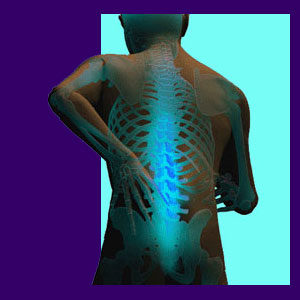
Work related back pain is often a patient’s first experience with serious spinal symptoms. Our vocations often put stress on our backs, either through physical demands or emotional strain. Back pain that is related to a person’s job costs companies billions of dollars every year in lost man-hours, insurance claims and poor worker performance. Back pain is, not surprisingly, the #1 reason for an employee to miss a day of work.
This dialog investigates the misery of suffering back pain agony while at work. If you are a worker with back issues, this essay will help you to find a solution that works.
Types of Working Back Pain
There is no particular pattern of work-related pain that is universal. Workers in many varied professions can suffer terrible pain or injury caused by their jobs.
Repetitive stress back pain is a common result of jobs that involve repetitive movements. Using the same muscles over and over can put an uneven load on the skeleton, as well as the muscles themselves.
Manual labor back pain is mostly due to overexertion of the back muscles. People with jobs involving hard physical labor must be very careful with their spines. Workers who perform vigorous and strenuous labor as a regular part of their job descriptions are at higher risk for every type of back pain.
Sitting back pain is the bane of office workers worldwide. People who are confined to a chair for much of their work day can suffer muscular, skeletal and posture related pain syndromes.
Driving back pain is similar to sitting back pain, but worse. Not only are drivers confined to a chair for their work day, but they must also operate foot pedals and vehicular controls while keeping a constant eye on the road. This condition is often a combination of muscular, postural and emotional stress related symptoms, all rolled into one horrible package.
Psychological Work Related Back Pain
Many workers feel emotional or psychological stress at work. This emotional stress causes distinct physical reactions in the body. The muscles get very tight, tense and prone to injury.
Work-related psychological back pain is one of the most common forms of all vocational symptoms. The patient might experience this pain directly from issues at work, or from personal issues that provide feelings of fear, anger, or insecurity concerning one’s career.
Preventing Work Related Back Pain
Make sure to use proper technique in everything you do at work. This applies to every job, including office work. If you must stand all day, take time to change it up every hour or so with a walk or a seated rest. If you must sit, take the time to get up and stretch. If you must use repetitive motions, try to switch off to the other hand to give one side a rest. If you are doing hard manual labor, wear a supportive back brace, bend your knees and use proper technique when lifting.
No matter what type of work you perform, learn to acknowledge and control your emotional stress. I discuss specific tips for minimizing back pain on the job in several of my books in the Cure Back Pain Forever Program, specifically my Back Pain Prevention book.
Surviving Work Related Back Pain
Back injury is common in the work place. It is one of the main contributing factors to the huge incidence of back pain litigation. No one wants to get hurt at work, so be careful out there!
Make sure that any unexplained back pain is not due to some emotional cause. The work environment is perhaps the single largest stress that most adults face in their lives. It is no wonder that psychological issues often create back pain as a way to keep someone away from their job for an extended period of time.
Learn more about handling the added pressure of working with back pain.





